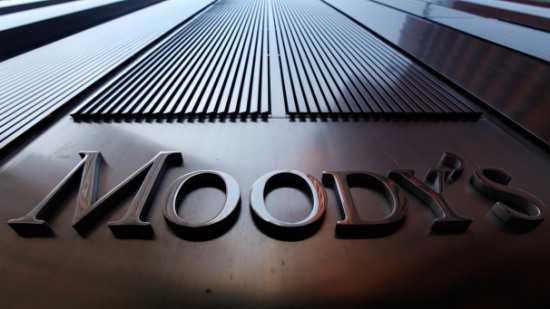AN WONG
ISTANBUL—Turkish assets leapt higher Wednesday as Moody’s Investors Service announced a long-awaited upgrade to Turkey’s sovereign debt rating, citing the country’s improving public finances and steps taken by Ankara to address its external imbalances.

Moody’s said the move, which raised Turkey’s sovereign-debt rating by one notch to Ba1—just below investment grade—was driven by the fast-growing economy’s improvements in its public finances and the shock-absorption capacity of the government’s balance sheet.
Turkey’s government effectively shrugged at the news, with Economy Minister Zafer Caglayan stressing that the upgrade was “right, but not enough,” adding that Turkey on Tuesday committed to providing $5 billion to the International Monetary Fund.
“We are still today kept on the same level with Hungary, Ireland and Guatemala,” Mr. Caglayan said.
The news saw the Turkish lira surge higher against the dollar to 1.7875 from 1.7980 before slightly trimming those gains. The Turkish benchmark stock index rose 1%, doubling the 0.48% rise in the MSCI emerging markets index, while Turkish bond yields fell to the lowest level since the end of February.
Analysts said the upgrade, which comes as markets have roiled on renewed fears over the prospect of a euro-zone breakup, underlines how stable or strengthening sovereign ratings in emerging Europe are beginning to converge with weakening credit stories in western Europe.
“Although Moody’s is still one notch below investment grade, today’s upgrade to Ba1 is a major positive not only for the credit story but also all Turkish assets,” said Simon Quijano-Evans, head of emerging markets for ING in London. “It also underlines the ratings convergence story that will continue between Western and Eastern Europe, especially given the much better fiscal dynamics of the latter.”
Moody’s, which also kept Turkey’s outlook as positive, signaled that it could upgrade the sovereign rating to investment grade if Turkey continued to reduce its current account deficit and private sector external borrowing while simultaneously increasing foreign exchange reserves.
Still, it is no secret that there is little love lost between Turkey’s policy makers and ratings firms.
Turkish cabinet ministers and central-bank officials have long bemoaned raters’ stance on its fast-growing economy, stressing that Turkey’s credit rating—which all three big firms rank below investment grade—is too low. Ankara has repeatedly fulminated against Fitch Ratings, Moody’s and Standard & Poor’s, hurling accusations of an anti-Turkish bias in their sovereign-ratings analysis. After Fitch lowered Turkey’s outlook in November, Economy Minister Zafer Caglayan said the company couldn’t be independent since it was 60% owned by French investors.
Last month, Turkey’s cabinet reacted furiously to Standard & Poor’s cut in Turkey’s outlook to stable from positive, with Prime Minister Recep Tayyip Erdogan accusing S&P of making an “ideological decision” and threatening to withdraw Turkey’s recognition of the agency as a legitimate credit institution.
Some economists agree. “I think many in the market would have a lot of sympathy for Erdogan and Turkey. The rating agencies have consistently got Turkey wrong, and it is two to three notches mis-rated by any fair assessment,” said Royal Bank of Scotland economist Tim Ash, a known skeptic of ratings companies’ views of Turkey’s credit-worthiness. “It should be investment-grade already.”
Credit-default swap markets also suggest Turkey should have a higher rating; they have traded at levels that would imply a rating above investment grade for months, economists say.
Still, although some market players have argued that Turkish fundamentals warrant a higher credit rating, markets also have been repeatedly unnerved by the rapid expansion of Turkey’s current-account deficit, which stood at 10% of gross domestic product in 2011 and its expected to be around 8% of GDP this year, one of the highest in the world.
via Moody’s Upgrades Turkey – WSJ.com.

Leave a Reply